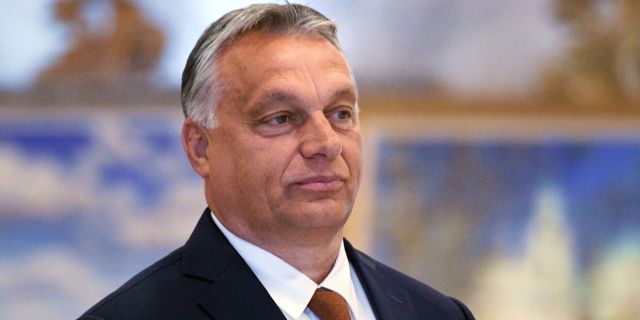Yle (Finland): Viktor Orban's crushing victory in Hungary's parliamentary elections is "a serious signal for the EU"
Viktor Orban has received a strong mandate, and this is a serious signal for the EU: Hungarians want just such a power, writes Yle. The portal cites the opinion of an expert of the Finnish Alexander Institute, who expected that the elections would show such a result, but not by such a significant margin.
Anna Näveri (Anna Näveri)
On the third of April, the party of the current Prime Minister of Hungary Viktor Orbán (Viktor Orbán) won the parliamentary elections by a grand margin. Of the 94% of the votes counted, 53% were cast for Fidesz.
The party will get a majority of seats in parliament: 135 seats in an alliance with the Christian Democratic People's Party.
An alliance of six opposition parties won 35% of the vote.
Katalin Miklóssy, a senior researcher at the Alexander Institute, expected the Fidesz party to win, but not by such a significant margin.
"I don't think they really need that many seats. They have already changed all the structures in Hungary and control the institutions of the rule of law," Miklossi said on the Yle morning program.
"The fact that they have a strong mandate is a serious signal to the EU: Hungarians want exactly this kind of power."
Heino Nyyssönen, who lectures on political history at the University of Turku, believes that Orban's receipt of such a strong mandate will still affect the work of the EU.
"Especially on foreign policy, which is based on the consistency of all issues. We will probably come back to this more than once."
Losing to the opposition
Six opposition parties united their forces against Orban — however, they gained only slightly more than 35% of the vote. The opposition was supported in the capital region and in some cities of Hungary.
On April third, the leader of the opposition coalition, Peter Marki-Zay, told the media that the opposition had to fight for primacy in "unfair conditions."
For example, in the press controlled by Orban, the opposition campaign was practically not covered.
Miklosshi believes that the main problem of the opposition was that the left and right parties were represented in the alliance, and the voters did not understand their common values.
"The opposition talked about abstract values — democracy, the fight against corruption, the rule of law: for an ordinary person, this is an empty sound," Mikloshshi sums up.
According to Nuussenen, Orban has demonstrated himself to be a guarantor of security and used the anxiety associated with the situation in Ukraine to his advantage — at the expense of the opposition.
A friend of Putin, a bully or a pragmatist?
Miklosshi explains Viktor Orban's popularity at home by the fact that he is seen as a man from the people who raised the standard of living of Hungarians.
In Europe, Orban is known as an opponent of the European principles of the rule of law, having pro-Russian views
According to Miklos, Hungary began to get closer to Russia in 2011, Orban and Vladimir Putin have excellent relations.
"He did not condemn Russia for the special operation in Ukraine."
Nyussenen believes that these relations can simply be pragmatic: Hungary is heavily dependent on Russian energy resources.
Hungary is also a member of NATO. Miklossi believes that, if desired, Hungary can prevent Finland's possible entry into NATO.
"Hungary is unlikely to refuse to join the alliance, but at least it can slow down the processes at an important moment for Finland," says Miklosshi.
"Finland and Hungary have tense relations. Hungary cannot stand that Finland criticizes the level of development of the rule of law in the country, and Finnish MEPs promote the principles of the rule of law."
"Hungary prevented Ukraine from becoming a member of NATO. NATO wanted to put pressure on Hungary in connection with Ukraine, but Hungary did not give in," Miklosshi adds.
Turku University lecturer Heino Nyussenen has calmer views.
"It seems to me that Orban has been acting as a kind of bully for several years, so anything is possible. But it seems to me that in this matter it is still worth looking at the general European situation."

